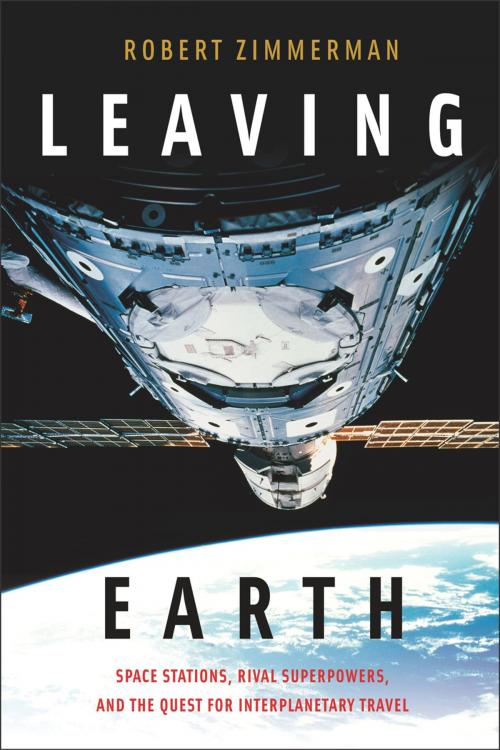Leaving Earth
Space Stations, Rival Superpowers, and the Quest for Interplanetary Travel
Nonfiction, Science & Nature, Technology, Aeronautics & Astronautics, Science, Other Sciences, History, Americas, United States, 20th Century| Author: | Robert Zimmerman | ISBN: | 9781456632830 |
| Publisher: | eBookIt.com | Publication: | February 14, 2019 |
| Imprint: | eBookIt.com | Language: | English |
| Author: | Robert Zimmerman |
| ISBN: | 9781456632830 |
| Publisher: | eBookIt.com |
| Publication: | February 14, 2019 |
| Imprint: | eBookIt.com |
| Language: | English |
In this definitive account of the quest to establish a human presence in lifeless outer space, award-winning space historian Robert Zimmerman reveals the great global gamesmanship between Soviet and American political leaders that drove the space efforts of both following the Apollo lunar landings in the 1960s and 1970s.
Beaten to the Moon by their Cold War enemies, the Russians were intent on being first to the planets. They knew that to reach other worlds they needed to learn how to build interplanetary spaceships, and believed that manned space stations held the greatest promise for making that possible. Thus, from the very moment they realized they had lost the race to the Moon, the Soviet government worked feverishly to build a viable space station program – one that would dwarf the American efforts and allow the Russians to claim the vast territories of space as their own.
Like the race between the tortoise and the hare, the ponderously bureaucratic Soviet Union actually managed to overtake the United States in this space station race. Their efforts – sometimes resulting in terrifying near death exploits – not only put them far ahead of NASA, it also served to reshape their own society, helping to change it from a communist dictatorship to a freer and more capitalist society.
At the same time, the American space program at NASA was also evolving, but not for the better. In fact, in many ways the two programs – and nations – were slowly but inexorably trading places.
Drawing on his vast store of knowledge about space travel and modern history, as well as hundreds of interviews with cosmonauts, astronauts, and scientists, Zimmerman has superbly captured the exciting story of space travel in the last half of the twentieth century. "Leaving Earth" tells that story, and is required reading for space and history enthusiasts alike who wish to understand the context of the space exploration renaissance taking place now, in the twenty-first century.
In this definitive account of the quest to establish a human presence in lifeless outer space, award-winning space historian Robert Zimmerman reveals the great global gamesmanship between Soviet and American political leaders that drove the space efforts of both following the Apollo lunar landings in the 1960s and 1970s.
Beaten to the Moon by their Cold War enemies, the Russians were intent on being first to the planets. They knew that to reach other worlds they needed to learn how to build interplanetary spaceships, and believed that manned space stations held the greatest promise for making that possible. Thus, from the very moment they realized they had lost the race to the Moon, the Soviet government worked feverishly to build a viable space station program – one that would dwarf the American efforts and allow the Russians to claim the vast territories of space as their own.
Like the race between the tortoise and the hare, the ponderously bureaucratic Soviet Union actually managed to overtake the United States in this space station race. Their efforts – sometimes resulting in terrifying near death exploits – not only put them far ahead of NASA, it also served to reshape their own society, helping to change it from a communist dictatorship to a freer and more capitalist society.
At the same time, the American space program at NASA was also evolving, but not for the better. In fact, in many ways the two programs – and nations – were slowly but inexorably trading places.
Drawing on his vast store of knowledge about space travel and modern history, as well as hundreds of interviews with cosmonauts, astronauts, and scientists, Zimmerman has superbly captured the exciting story of space travel in the last half of the twentieth century. "Leaving Earth" tells that story, and is required reading for space and history enthusiasts alike who wish to understand the context of the space exploration renaissance taking place now, in the twenty-first century.















